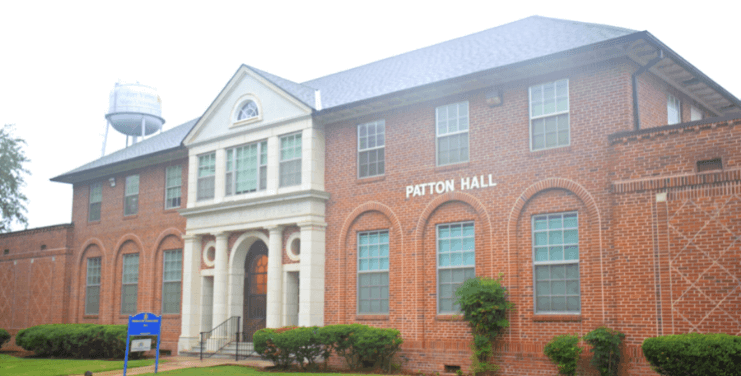KEY INSIGHTS
- At least seven HBCUs received more than $2 million from an anonymous donor last fall.
- If all the gifts are coming from one person, that individual has given at least $18.8 million to HBCUs in less than seven months.
- Every school is putting those millions towards scholarships for students with financial need.
In June 2021, the President of the University of the District of Columbia Ronald Mason received an email unlike any he had ever gotten before. The sender was telling Mason, who has worked in higher education for more than 30 years, that a donor wanted to give his school hundreds of thousands of dollars, but would not say who the donor was. After verifying the email wasn’t a hoax, Mason submitted a proposal. Soon after, UDC received $300,000.
“It was a good day when I got that email,” Mason told The Plug.
But UDC wasn’t the only HBCU to be approached about an anonymous donation. Tougaloo College, Talladega College, Morgan State University, Dillard University, Philander Smith College and Fort Valley State University all received anonymous donations of $250,000 last fall.
“Typically it’s the other way around, we identify potential funding sources,” Anthony Holloman, Vice President for University Advancement at Fort Valley State University, told The Plug about the unique donation.
But the money didn’t stop at $250,000. In December 2021, all seven HBCUs received a second gift from their anonymous donor — $2 million for UDC and $2.5 million for each of the other six schools. That single donation is twice the reported gifts an HBCU receives over an entire year. In fiscal year 2020, the median reported total private gifts for HBCUs was just $1.01 million, according to an analysis of data from the National Center for Education Statistics by The Plug.
While Mason and Holloman do not know the identity of the donor and therefore can’t confirm that it is the same person giving money to all the HBCUs, there is a clear pattern to the recent donations. If all the gifts are coming from one person, that individual has given at least $18.8 million to HBCUs in less than seven months.
Every school is putting those millions towards scholarships for students with financial need. Holloman said the donor to FVSU was passionate about creating more college graduates and helping prepare a workforce for the jobs of the 21st century.
More than 90 percent of FVSU students receive some sort of financial aid, Holloman said, so the school has created a program called the Finish Line Initiative, aimed primarily at juniors and seniors, that provides scholarships ranging anywhere from $500 to $5,000 and can be used for tuition, books and fees.
“In many cases, those dollars make the difference as to whether a student can persist to graduation,” he added.
The average Black college graduate owes $25,000 more in student loans than their white peers, according to the Education Data Initiative.
HBCU students also have higher student debt burdens. In a 2016 report, the United Negro College Fund found that 80 percent of HBCU students use federal loans to finance school versus 55 percent of their non-HBCU peers.
“When we look at the student debt crisis, the impact that has had on Black families and communities at large, I think that this is an opportunity for folks to be able to say HBCUs need more additional institutional aid to be able to support scholarships and funding to their students,” Denise Smith, Senior Fellow of Higher Education at progressive think tank The Century Foundation, told The Plug.
For UDC, the $2 million donation doubles the amount of scholarship funds available on an annual basis for the school. Each dean at the school will receive around $100,000 a year for the next three years to fund scholarships. Each dean will decide the range and specific criteria for the awards, but the student has to have a need and be in good standing with the university.
Mason said the anonymous donor started focusing more attention on what was happening racially in America after the murder of George Floyd, which translated into a desire to help HBCUs do their work.
UDC is using the initial $300,000 gift for an initiative to help high school students in Ward 8, a majority-Black area of D.C. where more than a quarter of families live below the poverty line. The initiative will create dual-enrollment programs, provide tutoring, incentivize parents to be more engaged in their children’s learning, and if a student completes a bachelor’s degree at UDC, once they graduate they will get $10,000. The school will now be able to hire a director to run that program.
“It’s based on a very specific assumption: That talent at birth is not distributed based on race or social status,” Mason said. But there is a clear disconnect between that assumption and the reality of who has wealth and opportunity in this country.
It’s a reality that HBCUs exemplify. Although they make up just three percent of America’s colleges and universities, HBCUs are responsible for more than 20 percent of African American graduates, but they lack the endowment and resources of Ivy League institutions.
Holloman said he thinks these donations show that philanthropists are recognizing the value that HBCUs bring.
“I’m really excited that our institutions have been able to receive significant funding because there’s always a need to support,” Holloman said.
“I think it’s a great example of the credibility that our institutions have developed over their existence.”








